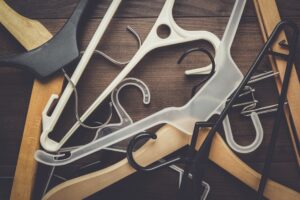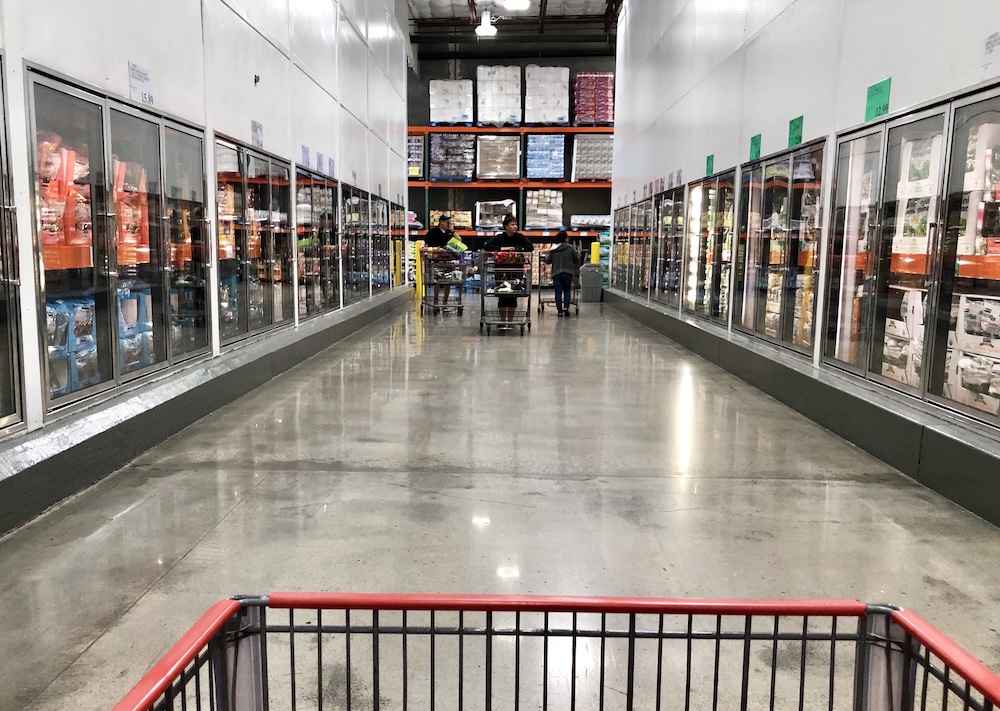The Allure of Buying Big
Buying in bulk feels smart — more product for less money, fewer trips to the store, and a sense of preparedness. But here’s the hidden catch: when bulk buying isn’t done with a plan, it often leads to waste.
That overflowing cart at the warehouse store may look like a budget win, but if half the food spoils before you use it, it’s costing you more — in money, resources, and environmental impact.
Why Bulk Buying Backfires Without a Plan
1. Perishables Don’t Last
Large quantities of fresh produce, dairy, and bread might save cents per ounce, but these foods have a short shelf life. Unless you’re feeding a large household or meal-prepping with purpose, there’s a high chance they’ll spoil before you finish them.
- Bags of greens wilt
- Bread molds
- Milk sours
- Fruit goes soft
Without a clear use for everything you’re buying, food ends up in the trash — and your savings disappear with it.
2. Freezer Overload Isn’t a Solution
Freezing can extend shelf life — but only to a point. Most households don’t have enough freezer space to stockpile bulk items long-term. And even when you do, food often gets forgotten or suffers from freezer burn.
Worse, overloaded freezers can make it harder to track what you have — leading to duplicate purchases and more waste.
3. Dry Goods Can Still Expire
People assume pasta, rice, and cereal are safe in bulk. But unless you’re rotating and storing them properly, even shelf-stable items can go stale, attract pests, or lose quality.
Some bulk items, like nuts and whole grains, oxidize faster than people expect, especially in warm or humid environments.
4. The Psychology of Abundance
When your pantry is full, it’s easy to over-consume or forget what’s hidden in the back. Bulk buying can create a sense of abundance that leads to:
- Larger portion sizes
- Duplicate products
- Forgotten or neglected items
This psychological effect contributes to waste — and to overconsumption that can affect health.
The Environmental Cost of Bulk Waste
Buying in bulk might seem sustainable — fewer trips, less packaging — but if food is thrown away, it’s worse than buying smaller amounts.
Here’s why:
- Resources wasted: All the water, energy, and labor used to grow and transport that food are wasted when it spoils.
- Methane emissions: Food waste in landfills releases methane, a greenhouse gas far more potent than CO₂.
- Packaging tradeoffs: While bulk items reduce packaging, they often come in larger plastic containers or single-use wraps — especially meats and snacks.
The result? A carbon-heavy, resource-intensive pattern that negates the benefits of buying in bulk.
When Buying in Bulk Does Make Sense
Bulk buying isn’t bad — it just needs to be intentional. It works best when:
- You know your household’s actual consumption patterns
- You have the right storage (airtight containers, freezers, cool/dry shelves)
- You meal plan or batch cook regularly
- You’re buying nonperishables or ingredients you use daily
Great bulk buys:
- Toilet paper, paper towels
- Dried beans, rice, pasta (in moderation)
- Frozen fruits and veggies
- Spices and herbs (if you cook often)
- Cleaning supplies
- Refill items (like baking soda or vinegar)
Poor bulk buys (unless well-planned):
- Fresh fruit and vegetables
- Milk, eggs, yogurt
- Baked goods
- Snacks and chips
- Cheese and deli items
Smarter Shopping: How to Avoid the Waste Trap
1. Audit Before You Buy
Check what’s in your fridge, freezer, and pantry. Don’t buy another 5-pound bag of rice if you already have two half-used bags hiding in the back.
2. Plan Your Meals
Have a plan for how you’ll use bulk purchases — especially perishable items. Write out at least 3–5 meals before buying in bulk.
3. Share With Others
Split large quantities with friends, neighbors, or family. You still get the discount without the waste.
4. Label and Store Properly
Use airtight containers, label with purchase dates, and rotate older items to the front. This keeps food fresh and top-of-mind.
5. Freeze in Portions
Rather than freezing a whole 5-pound bag of something, split it into meal-sized portions. It makes defrosting easier — and less wasteful.
Bulk Buying Is a Tool, Not a Shortcut
Bulk buying isn’t inherently bad — but without planning, it creates more waste than savings. The key is to match your shopping with your actual needs, habits, and storage capacity.
With a bit of mindfulness, you can still enjoy the benefits of buying in bulk — without the guilt, the garbage, or the greenhouse gases.








